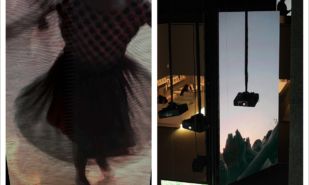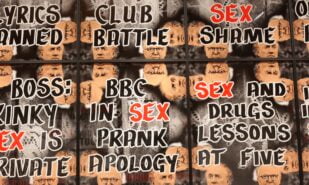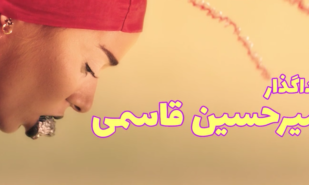The Eurovision Song Contest is one of the most significant and widely watched international music events, showcasing talent from across Europe and beyond. Started in 1956 and based on the Sanrenmo Music Festival held in Italy, the contest has since acquired a dedicated fanbase and a cult-like status with millions of viewers faithfully following it since childhood. While the competition is intended to be a celebration of music and cultural diversity, it has long been plagued by allegations of political bias. The rules of the contest officially state that the aims of the event are of a non-political nature, and participating broadcasters and performers are prohibited from promoting or referring to topics of a political, commercial or similar nature during the contest.
Despite this controversial moments have been occurring all throughout the competition’s history, and have included political tensions between competing countries being reflected in the contest’s performances and voting, disqualification of entries due to political references in song lyrics, and demonstrations against certain countries competing due to said country’s politics and policies. Although, sometimes reasons for these decisions are evident to the international viewer, such as the suspension of Russia from the contest in the wake of the invasion of Ukraine last year, there are multiple examples of questionable political controversies in the Eurovision. With the conclusion of this year’s Eurovision, the time has come to finally address these controversies, as well as to discuss the infamous “clique” division between the countries and revisit the history of “tensions” between the “Eastern Bloc” and The West that have been going on for years.
To begin with the discussion of this year’s Eurovision controversies, it is important to remember the fact that although the European Broadcasting Union (EBU), which organises Eurovision, has not allowed the president of Ukraine Volodymyr Zelenskiy to address the contest despite Ukraine holding it for no reason other than the event’s policy regarding international political involvement. Although officially hosted by the UK in Liverpool, the Eurovision was originally supposed to be broadcasted from Ukraine, which however was agreed not to be safe for the viewers and the contesters for obvious reasons. Despite this, Ukraine was still a major subject all throughout the contest this year: from the opening song by the last year’s winners the Kalush Orchestra to the Netherland’s contester’s dramatic performance of “You’ll Never Walk Alone Again” and Croatian drag show directly slamming Russia and Putin, and many other similar acts from mostly Eastern European countries, turning the musical contest into a four-hour war protest, with extra luminaires. Because of this, it is really surprising to think that the organisers could have made the event float above the world events by simply not allowing the presence of the Ukrainian president.
The aim of maintaining political neutrality, however, has never worked in the history of Eurovision and is now important to highlight the tendency that has existed since the inception of the contest: the voting preferences of the countries. The night of the Eurovision has always been performing a certain political function, in which the warring parties would bring their dispute for judgment by the group: Turkey vs. Greece; Russia vs. Georgia; Armenia vs. Azerbaijan. The latter can be considered the most famous example of a continued use of Eurovision as a battlefield of interests rooted so deeply in politics that a number of people in Azerbaijan who voted for the Armenian entry were reportedly questioned by Azeri police in 2009, and later in 2015 when Armenia was forced to change their contestant’s song name due to its alleged call for the recognition of the Armenian Genocide. Even beyond the international conflicts, the Eurovision’s voting system is often used by European viewers to show their sympathy or contempt for other countries’ politics. This is clear from the UK’s contestants’ unpopularity during the 2003 invasion of Iraq and during Brexit in 2016.
At the same time, the Eurovision 2014 winner Conchita Wurst, who is openly gay and performs in drag, has openly stated that her performance was a message for politicians who opposed LGBTQ+ rights. Coincidentally, her victorious performance took place not long after Russia passed a law banning “gay propaganda” among children in 2013, which was met with mass disapproval in Western countries. Despite the world’s support for the drag-queen, not every country has expressed the same level of approval of her performance: on average the singer received 4.4 points out of 12 from most Post-Soviet countries, with a similar rating in Eastern Europe overall. These examples suggest that, although the contest itself might be posed as a non-political event, its viewers are definitely involved with world politics and are happy to use the voting system to push their political agenda, which the organisers do not seem to mind despite their urges for unity and neutrality.
There is, however, a voting practice that the Eurovision organisers tried to bring under control: the “cliques”. It is no secret that certain allegations suggest that Western European nations and longstanding allies tend to favour each other, while Eastern European participants are doing the same but within their groups. It is typical for the viewers to vote for the countries that they are neighbouring, sharing cultures, languages, and often the musical scene. It is not surprising that there is a whole study on the Eurovision’s political alliances that suggests the existence of the Nordic clique, the Post-Soviet clique and some others that divide in a very similar manner. Western cliques have existed since the beginning of the contest and were never considered problematic, most of the Eastern European countries only joined the Eurovision in the 1990s., which has become one of the main arguments supporting allegations of political bias in the consistency in voting patterns observed over the years.
Certain Western European countries, such as the United Kingdom, France, and Germany, which are referred to as the “Big Five” due to their financial contributions, automatically qualify for the final each year. Critics argue that these countries often exchange votes among themselves, potentially marginalising Eastern European participants. Another aspect often cited is the practice of diaspora voting, where countries receive points from immigrant communities residing in other participating nations. This phenomenon is more prevalent among Eastern European countries due to the large diaspora populations in Western Europe. Critics contend that this type of voting skews the results and diminishes the chances of success for Eastern European acts. Music and culture have long been intertwined with politics, serving as vehicles for political expression and national identity. Eastern European countries, with their complex histories and recent struggles for independence, often use Eurovision as an opportunity to showcase their cultural heritage and assert their presence on the international stage.
After three former Yugoslavian countries – Croatia, Slovenia and Bosnia and Herzegovina – won the Eurovision a certain notion of Eastern Europe taking over the Eurovision started to occur among Western viewers. However, the perception that political considerations overshadow musical talent can be disheartening and lead to disillusionment among participants from these regions. Recognising the concerns raised by Eastern European countries and aiming to address the allegations of political bias, the EBU has made efforts to improve the transparency and fairness of the Eurovision Song Contest. Changes have been implemented to the voting system, including a combination of public and jury voting, to ensure a more balanced representation of the audience’s preferences.
In conclusion, it is important to say that, although the voting system has been changed and the calls for neutrality continue to exist within the Eurovision’s rules, it has now become apparent that Eurovision will always stay political, at the very least from the side of the viewers and on a bigger scale of international politics currently affecting the world as the contestants still choosing to perform pieces that correlate with them. There were many other political statements made by contestants throughout the years that involved flags on stage, same-sex kissing and lyrics referring to certain events, and as history shows, some of these forms of protesting and showing support for marginalised communities around the world were occasionally looked through by the EBU. With the Eurovision’s undenied history of political performances being clear, the question now is: why try to suppress or hide it every year?




